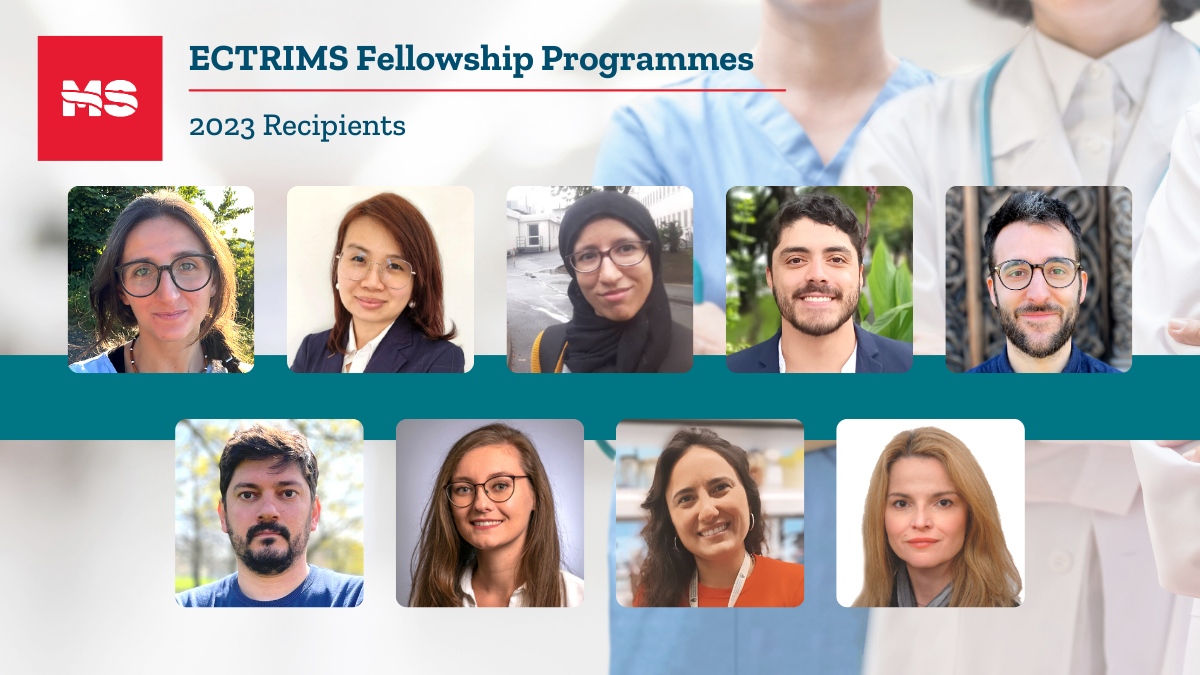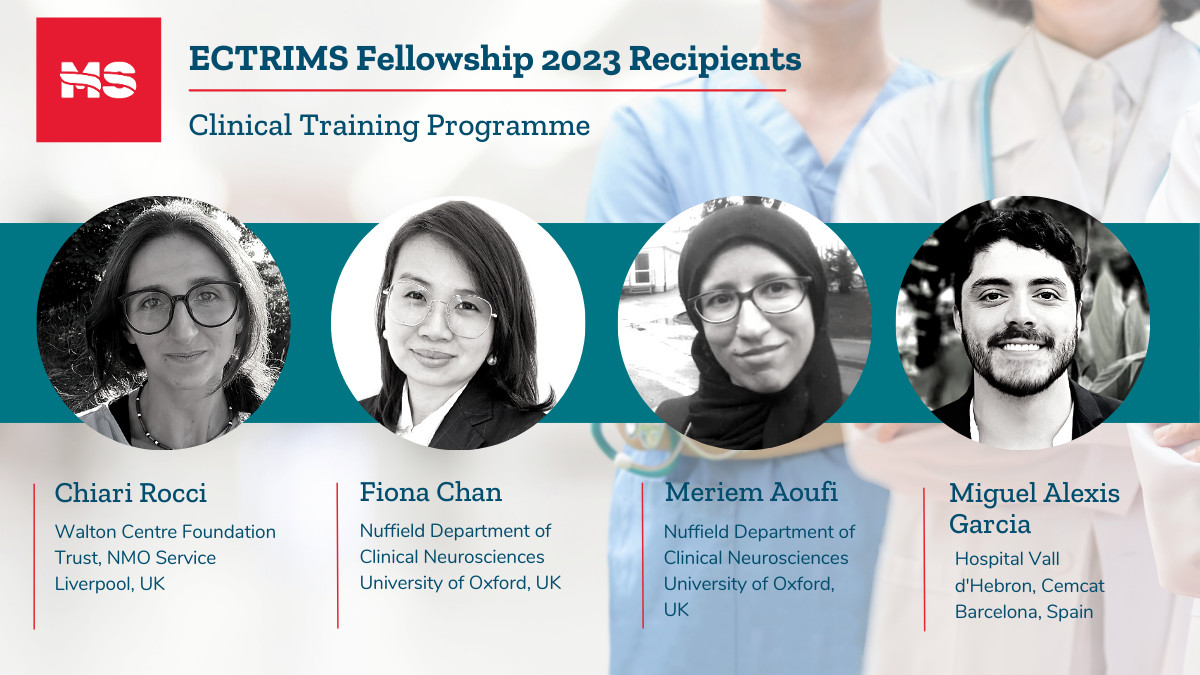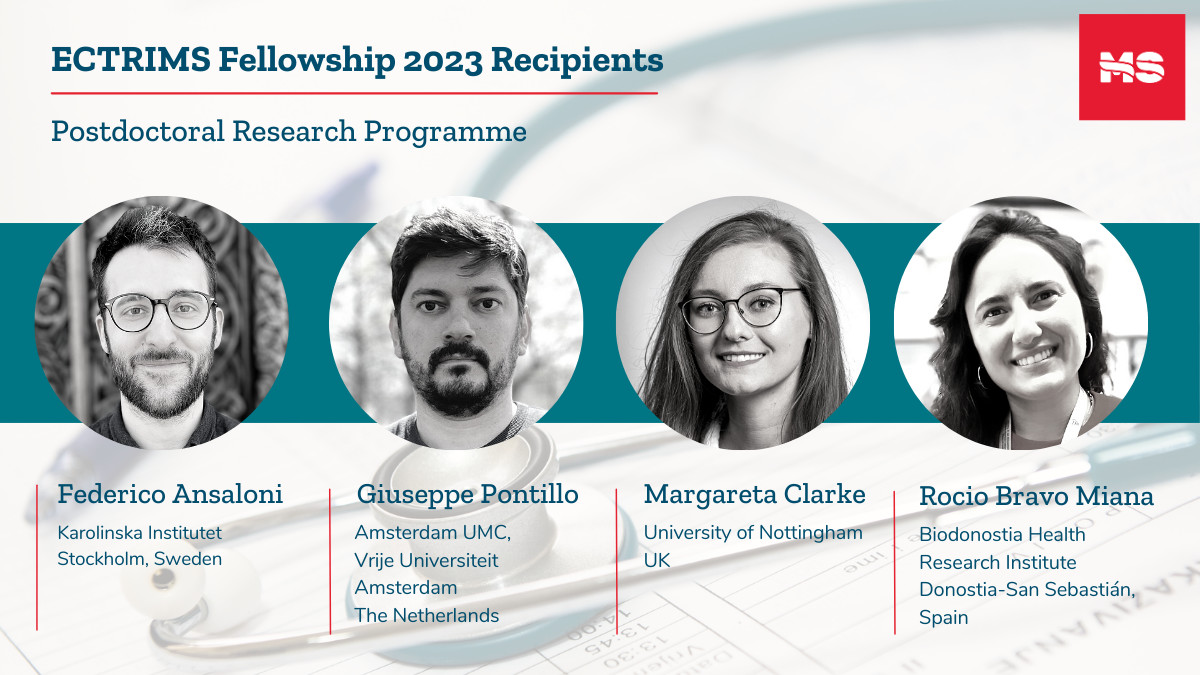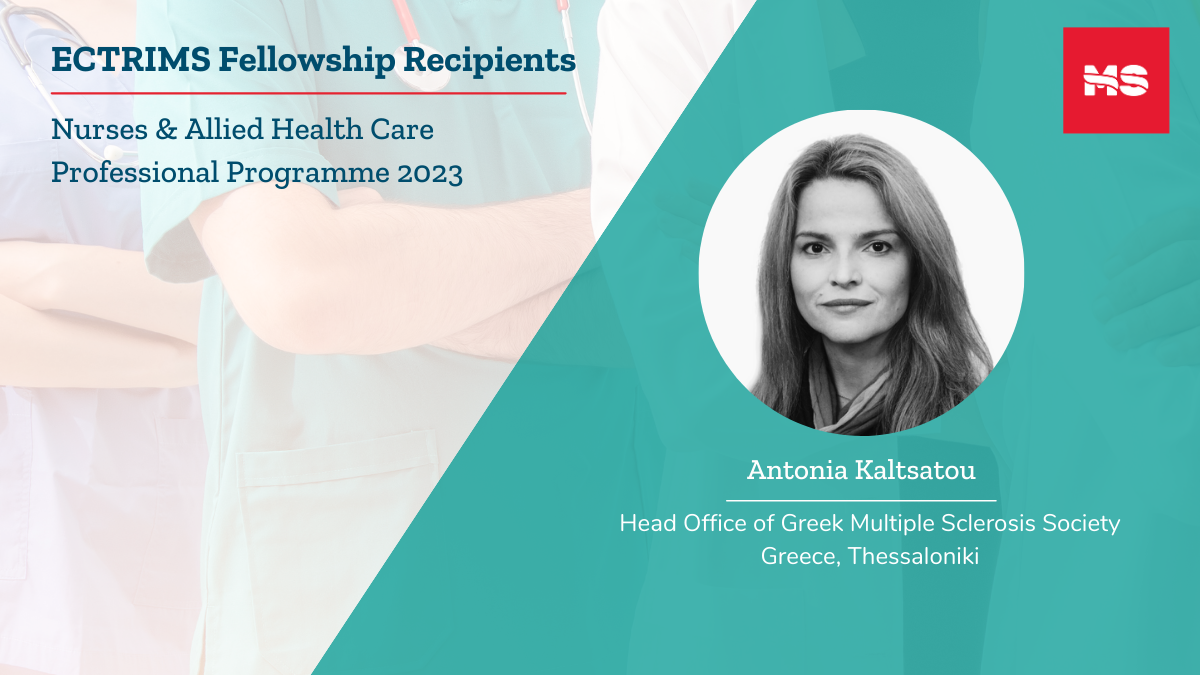
Projects to improve the prediction of disease course and personalisation of MS care, and to enhance patient education are among the winners of the 2023 ECTRIMS fellowship awards.
The programmes, which provide early-career MS researchers, clinicians, nurses and allied healthcare professionals (AHP) with funded training placements, attracted a high number of applicants from around the world. While this made selection challenging, it also demonstrated the sheer volume of talent and commitment to patient care present in the MS community, said ECTRIMS president Mar Tintoré.
Congratulating the successful applicants, Tintoré, said:
“Promoting and enhancing research, care, and learning, for the ultimate benefit of people living with MS, is exactly what ECTRIMS is here for. Our fellowships exist to ensure the next generation of researchers and MS professionals have everything they need to drive scientific advances and best practice. We were extremely impressed by the depth and breadth of the applications we received for this year’s programme. It shows that the future of MS research and care truly is in good hands.”
Clinical training fellowships

Four clinical training fellowships, which enable clinicians to learn the latest techniques in patient management under the direction of a senior clinical mentor at a European MS clinic and/or research centre, were awarded to:
- Dr Chiari Rocci, from Italy, who will spend her placement at the Walton Centre in Liverpool, UK, working on an epidemiological study on transverse myelitis and associations with systemic and neurologic disease. “The hospital in my hometown of Pesaro-Fano serves a population of 360,000 people. Currently it benefits from the work of one MS neurologist and patients from this area must typically travel to the regional neurology centre… My aspiration is to take the clinical and research skills I attain in this fellowship back to my hometown to help lead a specialised multidisciplinary MS clinic,” she said.
- Dr Fiona Chan, from Malaysia, will be based at the UK’s Nuffield Department of Clinical Neurosciences, for a project entitled Identification of the association between vascular risk factors with visual disability in an international MOGAD/NMOSD cohort utilising optical coherence tomography to inform prognosis and therapeutic approaches. She said: “I intend to incorporate key study outcomes into my clinical care to improve management of patients with disadvantaged socio-economic backgrounds. This is particularly applicable to the Malaysian patient cohort where limited public awareness, medical insights and financial resources remain challenging factors in the care of patients with MS, NMOSD and MOGAD.”
- Dr Meriem Aoufi, from Algeria, will also work at the Nuffield Department of Clinical Neurosciences, in the UK, on characterising intrathecal opsonin expression and spinal cord axonal loss in multiple sclerosis. “MS is highly prevalent in Algeria… but no specialist MS clinics are available,” she said. “This fellowship is a once in a lifetime opportunity for me to learn about the diagnosis and management of MS in an internationally recognised multidisciplinary centre of excellence, and to fill a great unmet need of my home country.”
- Dr Miguel Alexis Garcia will travel from his native Mexico to Spain’s Cemcat Hospital Vall d’Hebron, in Barcelona, where he will study the characterization of patients with highly active MS and assess response to high efficacy treatment in relation to disease evolution. He said that there was a lack MS and related disorder experts in his country, and that he was keen to use the skills he acquired during the fellowship to form a multidisciplinary team at a public institution. “Also, I would like to promote a better relationship with the Federal Commission for Protection against Sanitary Risks (COFEPRIS)… to convince them it is better to invest… in optimal treatments than in costs derived from disability-related issues,” he added.
Read more about the clinical training fellowship here.
Postdoctoral research fellowships

The ECTRIMS postdoctoral research fellowships train early-career neuroscientists on how to facilitate their own MS-related basic science, clinical or applied research study. The 2023 winners were:
- Dr Federico Ansaloni, from Italy, who will explore the role of endogenous retroviruses and viral infection of oligodendroglia in MS at single-cell resolution, at the Karolinska Institutet in Stockholm, Sweden. He said: “I will broaden my expertise in single-cell transcriptomics and epigenomics and I will acquire new knowledge in novel techniques. Most importantly… I will learn how to apply this knowledge to the clinical research field, acquiring experience on how to identify potential molecular targets for the development of novel therapies.”
- Dr Giuseppe Pontillo, also from Italy, will work on a project called Towards individualized clinical predictions in Multiple Sclerosis: A data-driven predictome linking neuroimaging to outcomes, at Amsterdam UMC, Vrije Universiteit Amsterdam, Netherlands. “It will be an enriching experience and an invaluable opportunity to further refine my skills and foster my career,” he said. Upon completion of the fellowship, Dr Pontillo plans to set up a research group at his home institution. “I will be offered a tenured clinical and academic position, and continue… to give my enduring contribution to the MS clinical and scientific communities.”
- Dr Margareta Clarke, from Poland, will travel to the University of Nottingham, in the UK to work on a study to predict chronic activity in multiple sclerosis lesions from baseline MRI. “With advances in computer science and computational modelling, it is becoming increasingly desirable for neuroscientists to possess advanced computer programming and modelling skills, in addition to a strong understanding of disease processes and MS pathology,” she said. “Completing the ECTRIMS fellowship would allow me to gain important practical skills to ultimately help me become an independent scientist and academic in the near future.”
- Dr Rocio Bravo Miana’s research project is Central nervous system (CNS)-derived extracellular vesicles: specific circulating biomarkers and a promising window into the CNS of multiple sclerosis patients. Dr Bravo Miana, from Argentina, will complete his placement at the Biodonostia Health Research Institute, in San Sebastian, Spain. “One of the most important things for researchers is to be in real contact with the patients, know their requirements, doubts, and worries. What I find highly motivating is the opportunity to conduct annual meetings with the Multiple Sclerosis patients association in our community, to show our results and share our progress,” he said.
Read more about the postdoctoral research fellowship here.
Professional training fellowship

The professional training fellowship offers nurses and AHPs the chance to obtain or expand their expertise in MS.
This year’s successful candidate was Dr Antonia Kaltsatou, from Greece, who will be working on innovative methods to improve and promote MS individuals’ care and education at the Greek Multiple Sclerosis Society’s head office, in Thessaloniki. She said the placement was a “unique opportunity” to enhance her professional capacity in managing MS symptoms. “My career plan is based on the knowledge and the network I will gain during the fellowship. My priority is to share knowledge on MS rehabilitation with the University of Thessaly students and other colleagues interested in this field.”
Read more about the professional training fellowship here.
There’s still time to apply for next year’s ECTRIMS fellowship programmes. Find out how here.